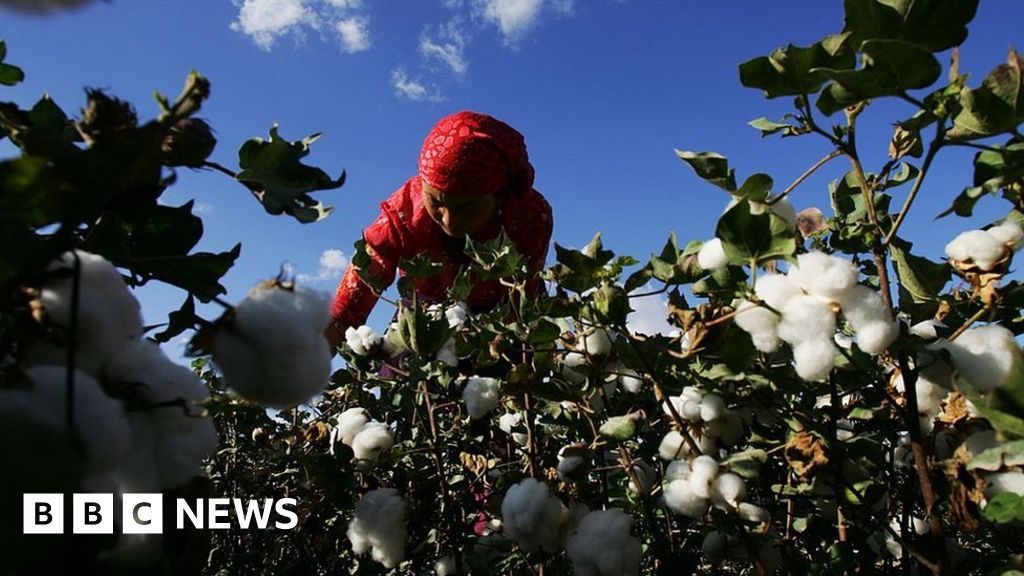image courtesy of Getty Images Following the opening of a “crimes against humanity” investigation into their actions in China’s Xinjiang province, retailers have retaliated. Prosecutors in France are investigating allegations that four fashion labels sourced goods from Uyghur Muslims in China using forced labor. Uniqlo, Inditex, the parent company of Zara, and SMCP, a French textile company, have all denied the allegations, while Skechers has declined to comment. China vehemently denies allegations of human rights violations in the region. The United States, the European Union, the United Kingdom, and Canada imposed penalties on Chinese officials in March, claiming human rights violations in Xinjiang. Beijing swiftly responded with a retaliation of its own. The investigation was launched when the European Uyghur Institute and other pressure organizations complained that the merchants were benefitting from the use of forced labor. After the Xinjiang boycott, H&M has seen a drop in sales in China. What ethnic group are the Uyghurs? According to a spokeswoman for Inditex, who talked to the BBC, “We categorically deny the allegations in this case. Inditex has strict traceability measures in place, and we want to work closely with the French authorities to prove that the charges are false.” “At Inditex, we have zero tolerance for any sort of forced labor, and we have created policies and procedures to ensure that this practice does not occur in our supply chain,” the spokesman continued. image courtesy of Getty Images Inditex stated that company “completely complies” with all existing legislation and recommendations pertaining to labor rights protection. According to the corporation, it has put in place a human rights compliance framework that is “based on the highest international standards.” “If and when notified, we will completely cooperate with the inquiry to reaffirm there is no forced labor in our supply chains,” Uniqlo’s parent company, Tokyo-based Fast Retailing, stated. The corporation was aware of the investigation’s media reports, but had not been approached by authorities, according to the spokeswoman. image courtesy of Getty Images Uniqlo stated it completed checks to guarantee that no human rights violations occurred in its supply chain, and that none of its manufacturing partners are based in Xinjiang. SMCP, a French textile company, also stated that it undertakes frequent audits and does not have any “direct suppliers in the region” that have been cited in the press. While international companies may conduct audits that find no evidence of forced labor in supply chains, Sophie Richardson, China director at Human Rights Watch, told the BBC that “political repression in the Xinjiang region is so pervasive that labor inspectors cannot interview workers freely without fear of reprisals,” Inspectors, she said, are unable to enter facilities without prior notice, and they are unable to compel regional authorities to produce crucial information regarding working hours, wages, or other key labor conditions. The director of the World Uyghur Congress in the United Kingdom, Rahima Mahmut, agreed, saying it is “difficult” to “carry out this research independently in the region due to the regime.” “We need more cross-national collaboration, and while we applaud France’s initiative, we believe that such inquiries should be carried out across Europe.” image courtesy of Getty Images The inquiry “testifies to the potential involvement of economic actors in the execution of the most serious crimes in order to boost their profit margins,” Sandra Cossart, director of anti-corruption organization Sherpa, one of the groups that filed the complaint, said. According to MPs, China is committing genocide against the Uyghur people. Solar panels in China are made with forced labor, according to a report. The Xinjiang region produces 85 percent of China’s cotton and contributes nearly a fifth of the world’s cotton. Nike, H&M, and Burberry have all faced blowback in China after raising concerns over the alleged use of Uyghur slave labor in cotton production earlier this year. According to evidence provided to the BBC, close to half a million Uyghur laborers are drafted into seasonal cotton harvesting each year. Uyghurs have been held in facilities where there have been reports of torture, forced labor, and sexual abuse. These assertions have been refuted by China, which asserts that the camps are “re-education” centers aimed at pulling Uyghurs out of poverty. RetailingFrance ChinaXinjiang Human rights are important. FashionUyghurs/n
Read MoreFrance investigates retailers over China forced labour claims
2021-07-02T14:34:28-04:00July 2nd, 2021|





